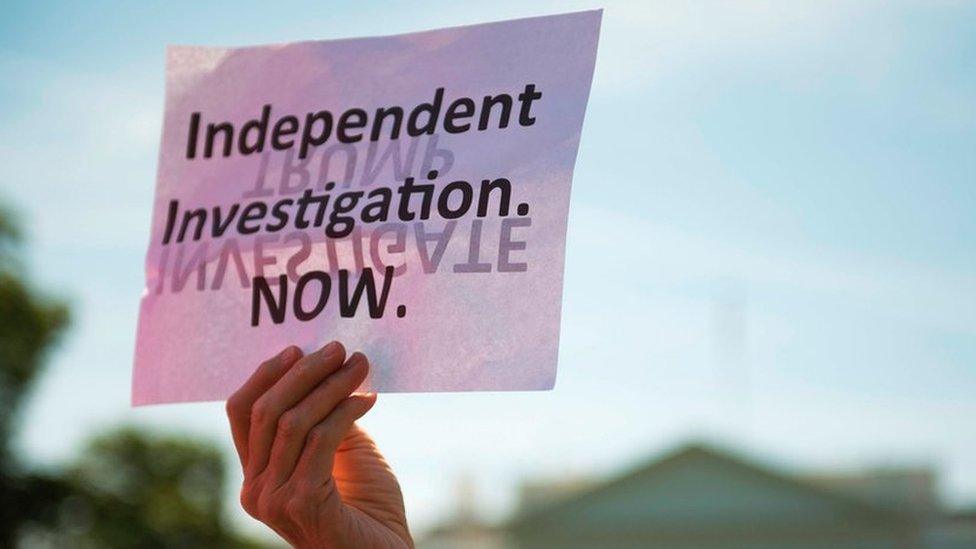Trump ex-campaign chief Manafort's 'income doctored'
- Published
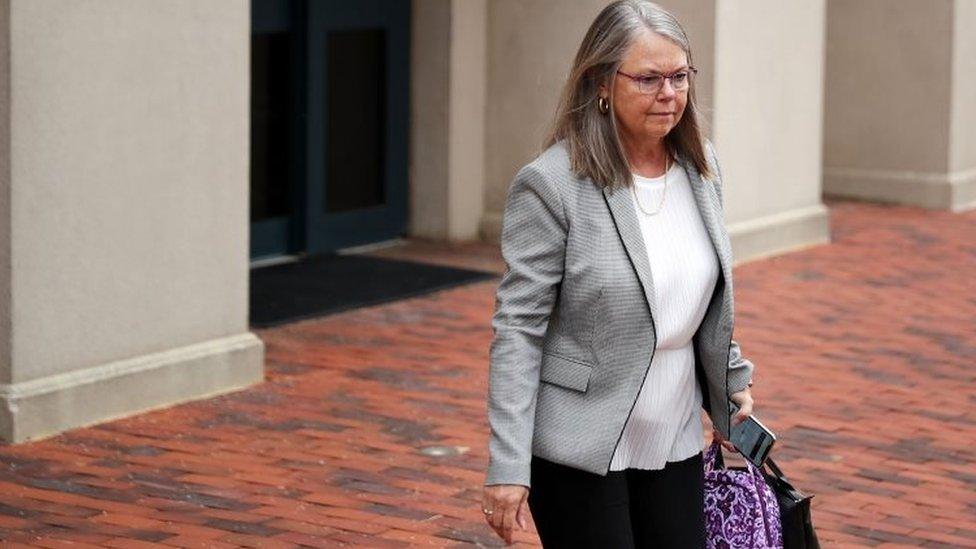
Cindy Laporta was testifying in court on the fourth day of the trial
An accountant for Donald Trump's former election campaign chief Paul Manafort says she helped disguise his foreign income so he could pay less in tax.
Cindy Laporta told the court in Alexandria, Virginia, she had been told to concoct a $900,000 (£690,000) loan on his tax return in 2015.
Mr Manafort is facing charges of bank fraud, tax fraud, and failing to report foreign bank accounts.
The former political consultant has pleaded not guilty to the charges.
Last month, Mr Manafort, who ran the Trump campaign for three months, was accused by prosecutors of using numerous accounts in order to evade tax.
He could face up to 30 years in jail if found guilty.
None of the charges that Mr Manafort faces at trial relate to the investigation into possible collusion in 2016 between Russia and the Trump campaign.
What happened in court on Friday?
Testifying on the fourth day of the trial, Ms Laporta, who has been given immunity in exchange for testifying, said she knew what she did with fabricating the loan was "not appropriate".
"You can't pick and choose what's a loan and what's income," she said. "I very much regret it."

A courtroom sketch shows Mr Manafort seated during the opening day of his trial
She added that she had agreed to do this under pressure from Mr Manafort's former associate Rick Gates, who had alleged that Mr Manafort did not have the money to pay the full tax.
Ms Laporta said Mr Manafort had likely saved up to $500,000 in taxes in 2015.
Mr Manafort's lawyers have previously argued that Mr Gates is the one responsible for the financial charges.
"This is about Mr Manafort placing his trust in the wrong person," defence lawyer Thomas Zehnle said in his opening statement.
However, prosecutors argue that Mr Manafort was closely involved in managing his own finances.
Mr Gates has already pleaded guilty to charges of conspiracy and lying to investigators. He has since been co-operating with the investigation into Mr Manafort.
The accused
Before joining Mr Trump's team in summer 2016, Paul Manafort had worked on a number of Republican presidential campaigns, including those of Gerald Ford in the mid-1970s and Ronald Reagan from 1978 to 1980.
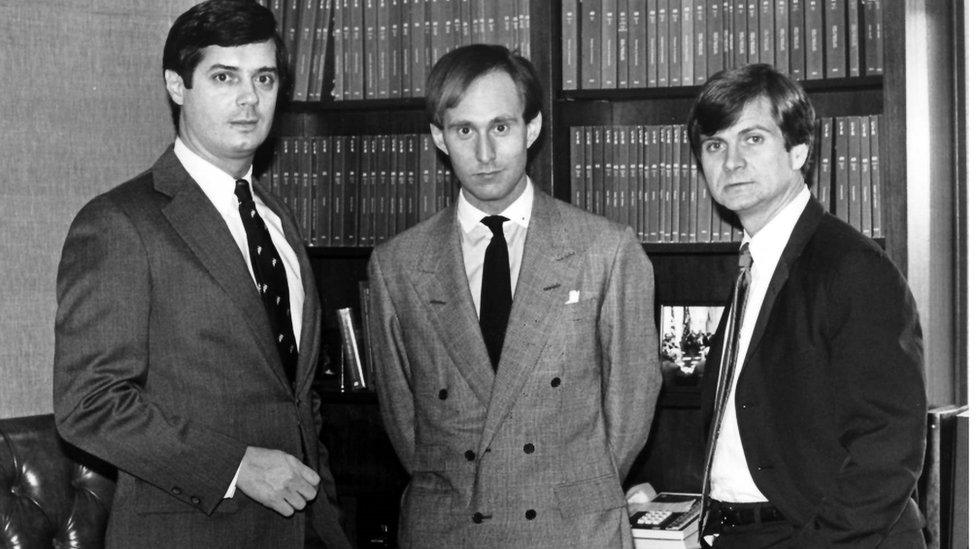
Paul Manafort (L) in 1985 with fellow political consultants Roger Stone (C) and Lee Atwater (R)
As a lobbyist, he developed a reputation for representing the unrepresentable, including former Philippine strongman Ferdinand Marcos, who was accused of torturing, abducting and killing thousands of opponents.
Mr Manafort took over as chairman of the Trump campaign in May 2016 and aimed to present a more thoughtful candidate, who stuck to scripts instead of ad-libbing in campaign rallies.
He was in the hot seat when Mr Trump eventually won the Republican nomination, and organised the Republican convention in July 2016.

Three more things to read

But Mr Manafort quickly faced allegations that he had not disclosed millions of dollars he received for consultancy work he carried out in Ukraine for its then pro-Russian president.
At the same time, the Republican Party changed the language in its manifesto regarding the conflict in Ukraine, removing anti-Russian sentiment.
Mr Manafort quit Mr Trump's team in August 2016.
- Published24 December 2020
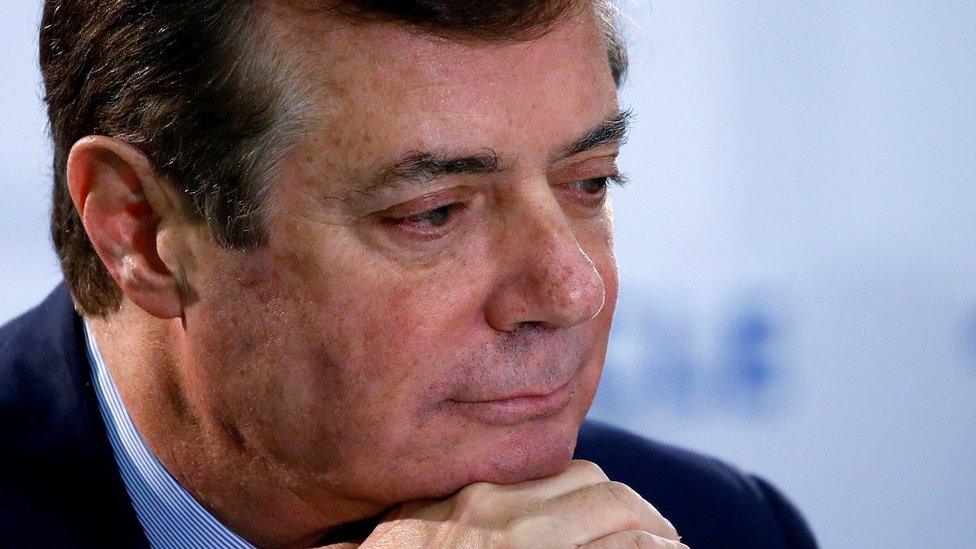
- Published12 July 2017
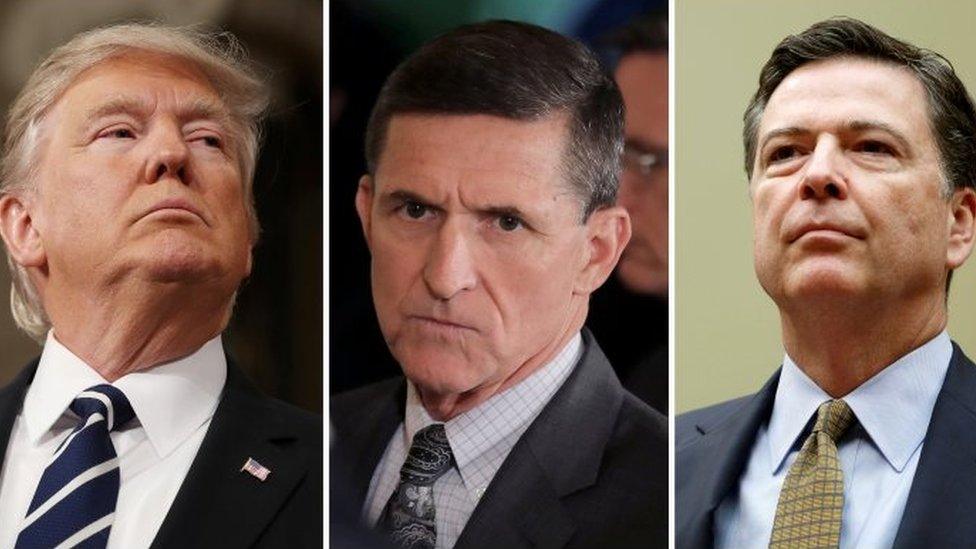
- Published25 March 2019
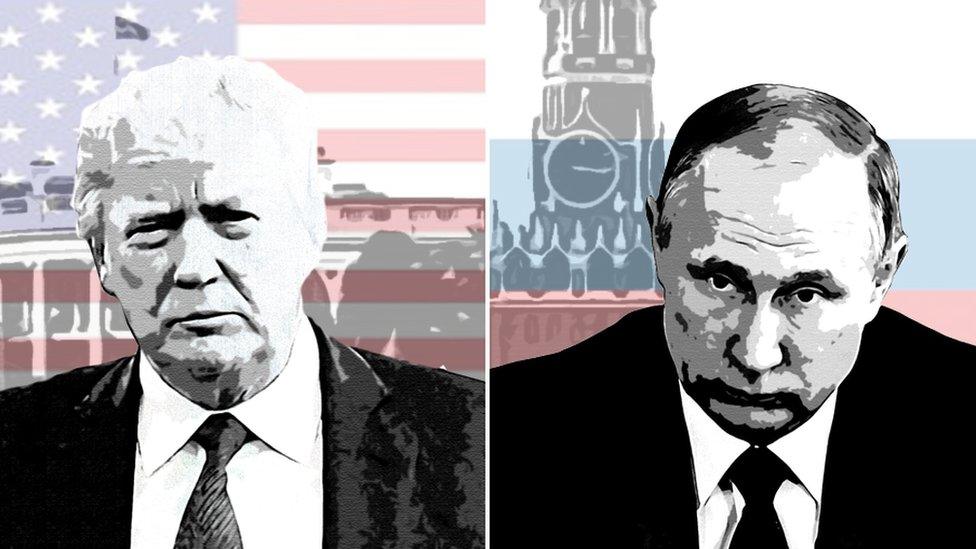
- Published24 July 2019
